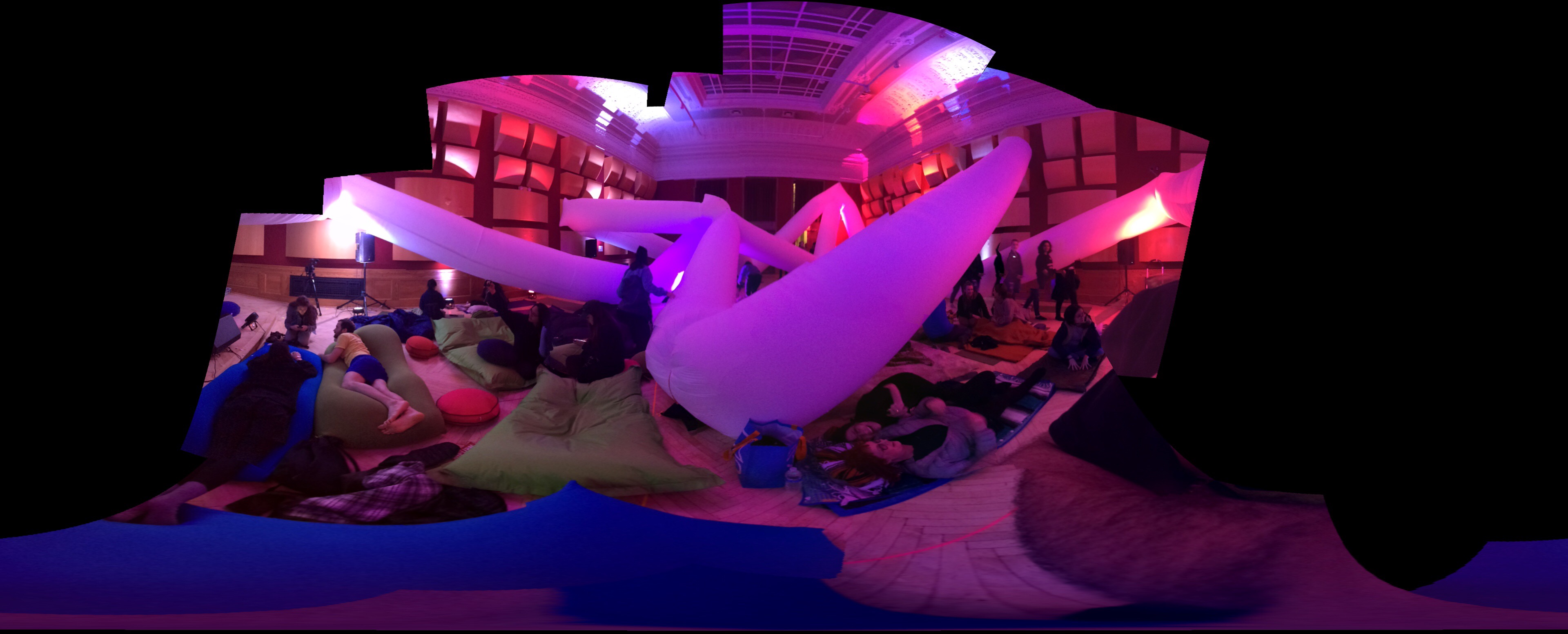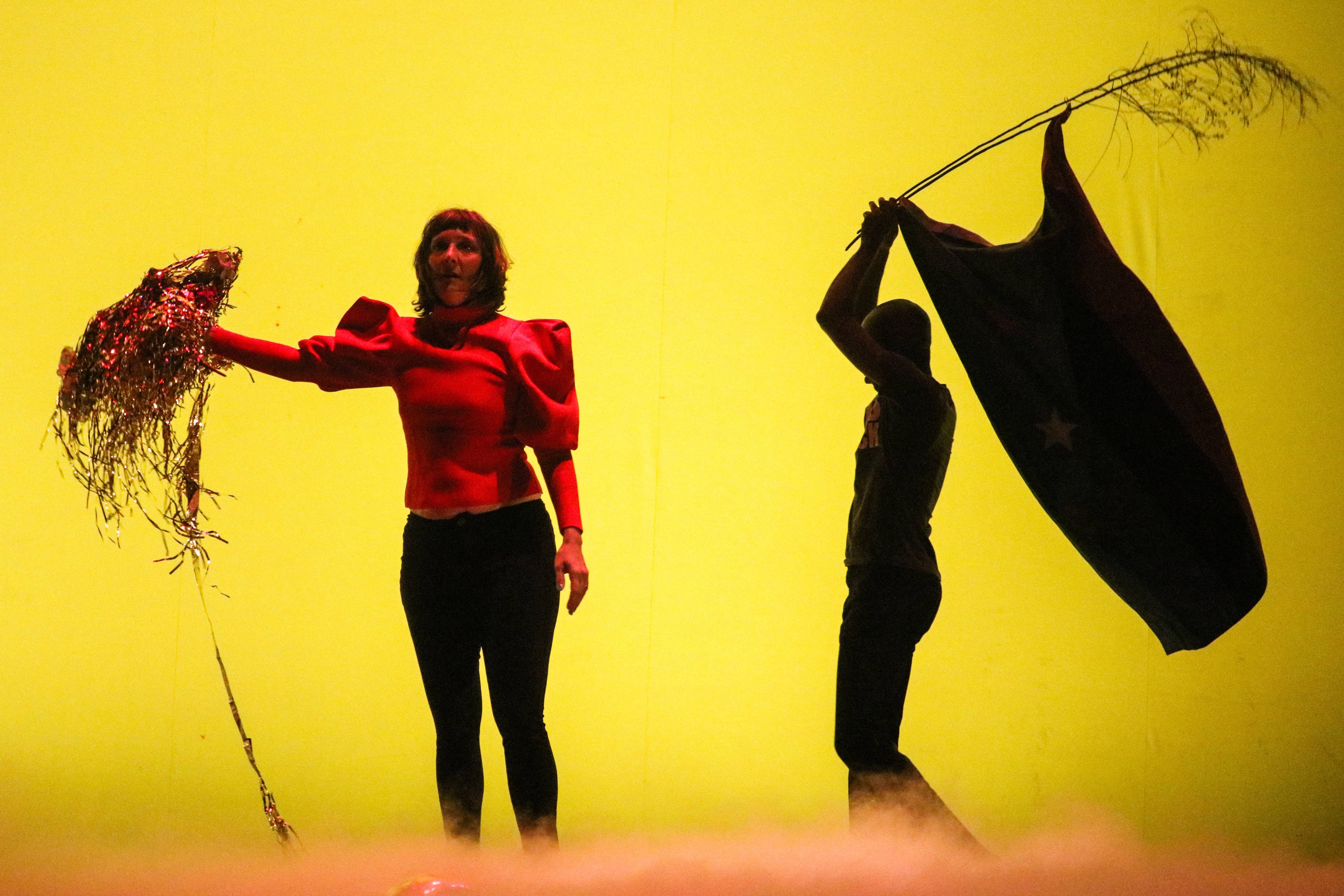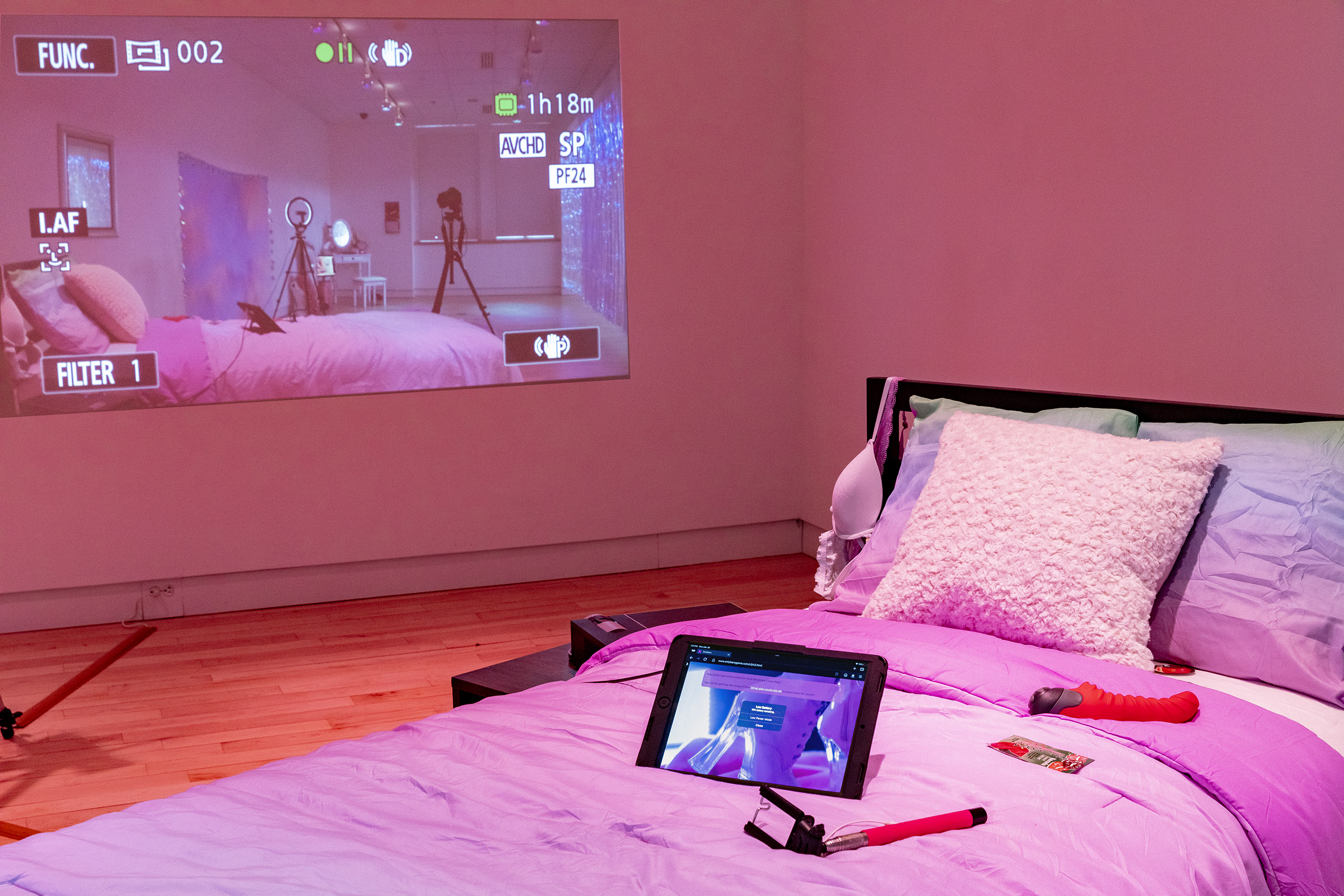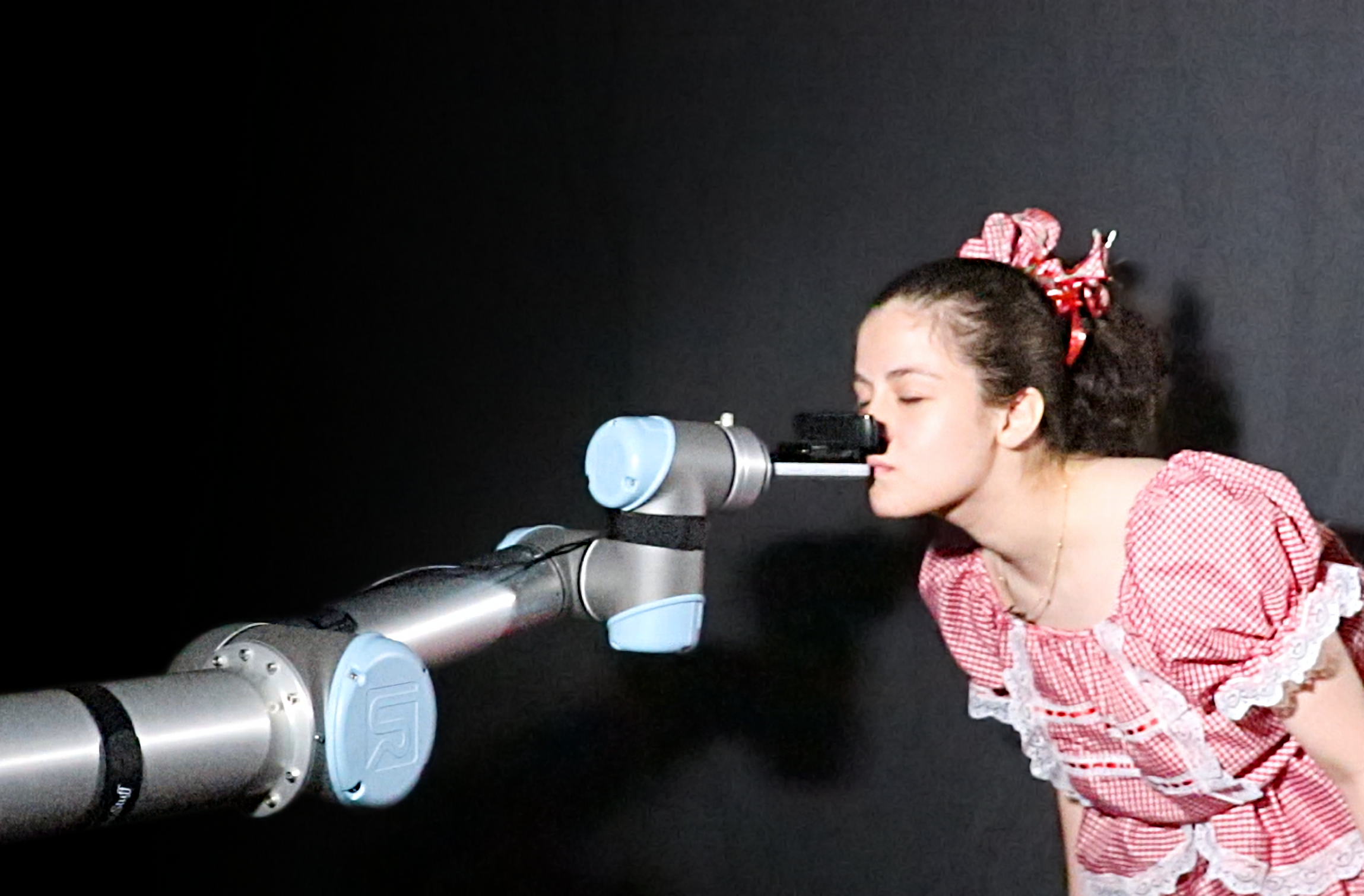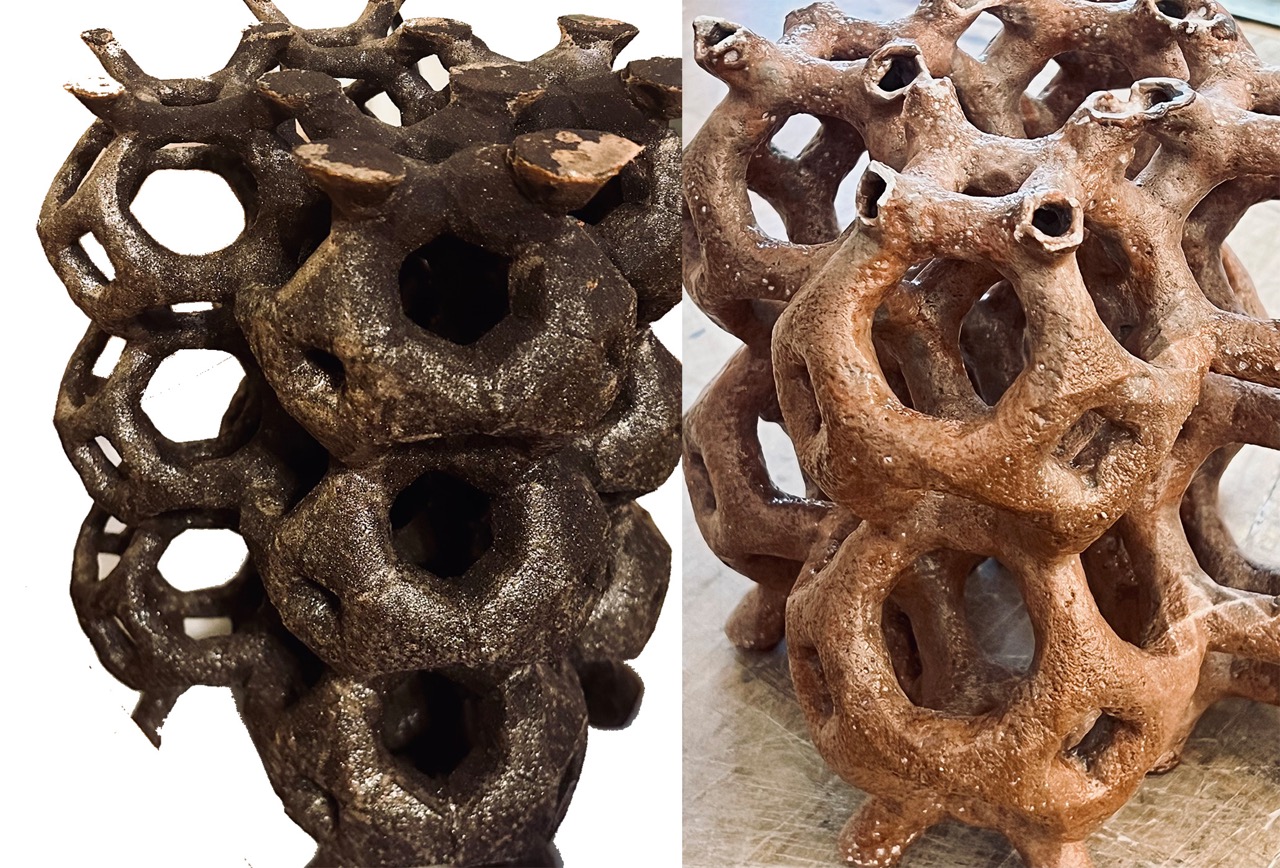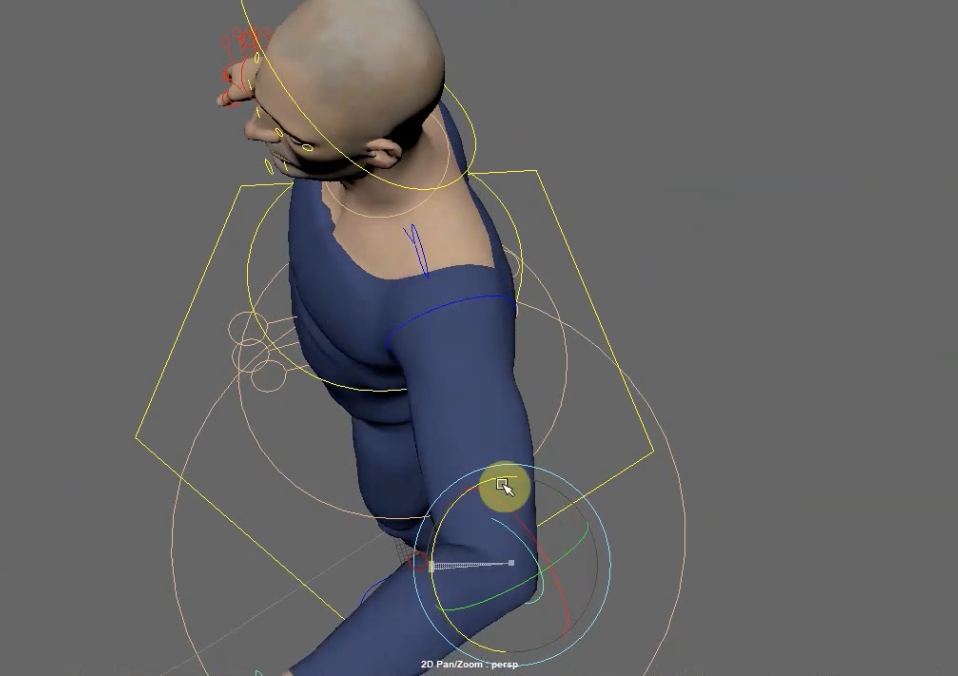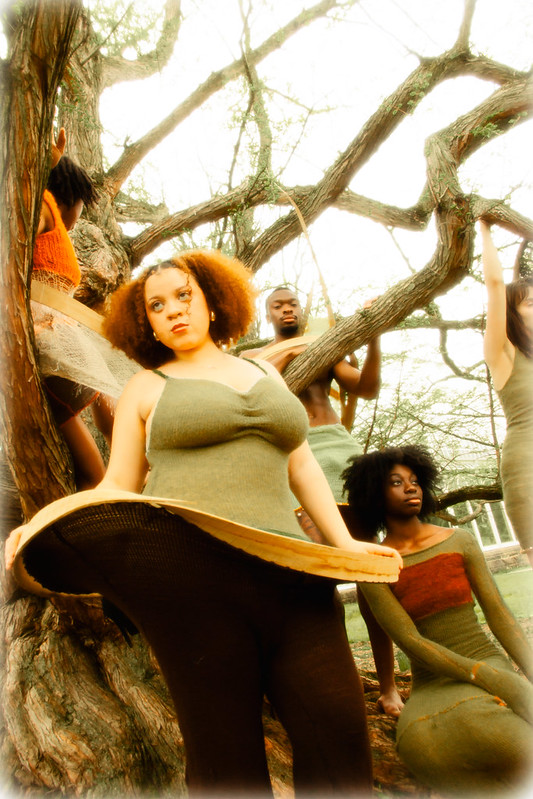FRFF Grants & Microgrants
Apply for a Microgrant
Apply for a Full Grant
Submit Project Documentation
Submit Expense Reimbursements
Scroll down for eligibility/requirements
The STUDIO administers the Frank-Ratchye Further Fund (FRFF): an endowment to encourage the creation of innovative projects by the faculty, students and staff of Carnegie Mellon University.
Watch this video to learn more about the Frank-Ratchye Further Fund
With this fund, the STUDIO seeks to develop a cache of groundbreaking projects created at CMU — works that can be described as “thinking at the edges” of the intersection of disciplines. The Frank-Ratchye Further Fund supports approximately fifty projects per year through a combination of full grants and Microgrants.
Any faculty, student or staff person actively affiliated with Carnegie Mellon is eligible to apply, regardless of their home department.
You are strongly encouraged to book an appointment with the STUDIO Associate Director, Harrison Apple, to discuss questions about your research proposal prior to submission including eligibility and feasibility. You can draft your application ahead of time by using the application details at the bottom of this page. Awardees are required to sign the FRFF Award Agreement to receive / access their funds.
|
Microgrants · Rolling applications (occasional closures over university breaks) · Up to $500 · Decided by STUDIO Director as they are submitted · Must complete spending within 6 months of award letter |
Full Grants · Fall Deadline September 21 2025, Spring Deadline February 8th, 2026 · Between $501 – $5,000 · Juried Decision within 1 month following deadline · Must complete spending within 12 months of award letter |
Draft your Application Using the Sections Below
(UPDATED: August 2025)
Have you discussed your proposal with a STUDIO staff member, and with whom?
- You are strongly encouraged to book an appointment with the STUDIO Associate Director, Harrison Apple, to discuss questions about your research proposal prior to submission including eligibility and feasibility. You can draft your application ahead of time by using the application details at the bottom of this page. Awardees are required to sign the FRFF Award Agreement to receive / access their funds.
Faculty Statement of Support
- All students are required to have a faculty member provide a brief statement of support using the reference section of the application. Faculty are expected to share a short statement expressing their personal recommendation of the student project based on its feasibility, quality, and the student or students’ capacity to do this type of creative research.
-
Project Title
-
What are you planning to create?
-
Why are you creating it?
-
How will you accomplish this?
Methods and timeline
-
Why are you applying for the Further Fund
Use this space to tell us why the FRFF is the funding source that matches your project needs. Are you chaffing at the edges of your discipline? Have you tried finding funding elsewhere? Are you pushing and furthering something for yourself and/or others?
-
Short Bio
Tell us about your previous experiences, education, and / or training that prepared you to take on this project
-
Names of Collaborators
-
Supplemental Materials / Webpage
If the project for which you seek support already has its own website or shareable online content (e.g. dropbox or google drive)
-
Minimum Amount Requested – Maximum Amount Requested
What amount of funding would help you make the smallest scale of your project? What amount of funding would support the project in its ideal form
-
Explain how your project specifically benefits from the highest requested funding amount
-
Project Start Time
-
Anticipated Duration
-
Anticipated additional support
In addition to financial support, what additional forms of support might help you realize this project? Checking these boxes does not guarantee the availability of additional resources. Please follow up directly with the STUDIO studio-info@andrew.cmu.edu
Budget
- We recommend using this template to outline how you intend to spend the award for your research project. It is crucial to demonstrate how you will use the total amount, including links to specific products and vendors, cost per item, and especially if you intend to hire others for assistance/services in order to complete the project. The form will ask for a minimum (barebones) budget and a maximum (dream-outcome) amount.
-
If you are a student please note that funds are ideally distributed as Non-Qualified Scholarships (NQS). More information can be found here: https://www.cmu.edu/finance/
taxation/guidelines/ scholarships-fellowships.html For U.S. citizens and Resident Aliens for tax purposes, this income is self-reported. The student will not receive a Form 1099 and tax is not withheld on the income up front. It is advised that the students contact their personal tax advisor regarding the self-reporting and tax consequences.
Foreign Nationals (nonresident aliens), however, are subject to tax withholding and reporting on non-qualified scholarships. The only way to be exempt from the tax is if there is a treaty between the foreign national’s home country and the United States and if the individual is qualified to take advantage of the treaty.”Please research this topic because if you are a “Foreign National” and receiving a NQS there may be taxes removed from the award before it arrives to you. Also please note that if you purchase the items yourself you must include sales tax in your budget. These considerations should be considered in your budget as they will impact the feasibility of your project.
